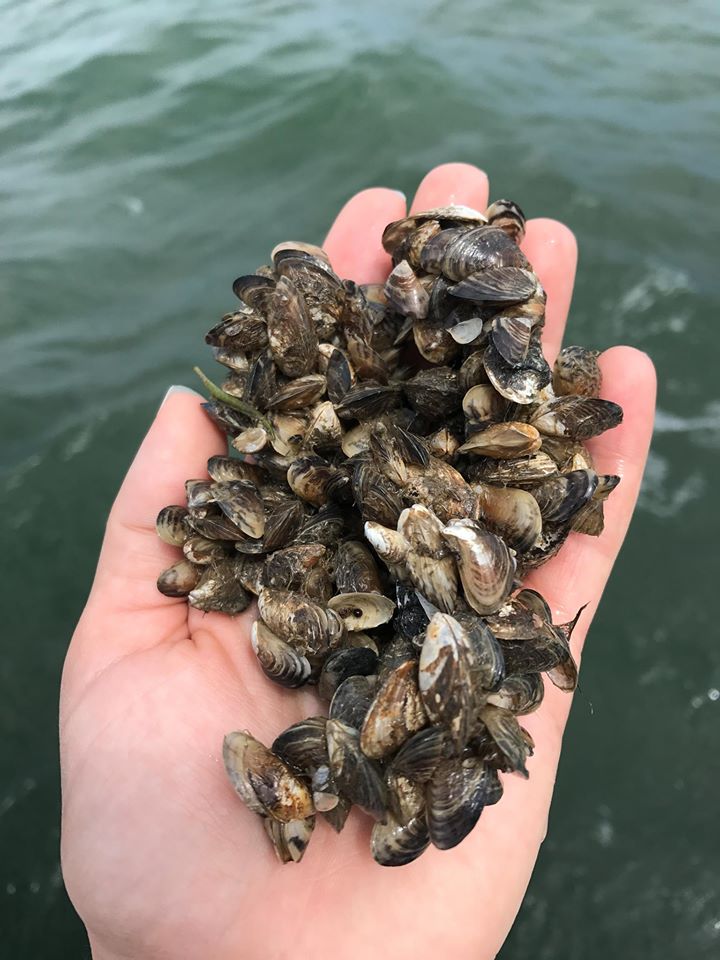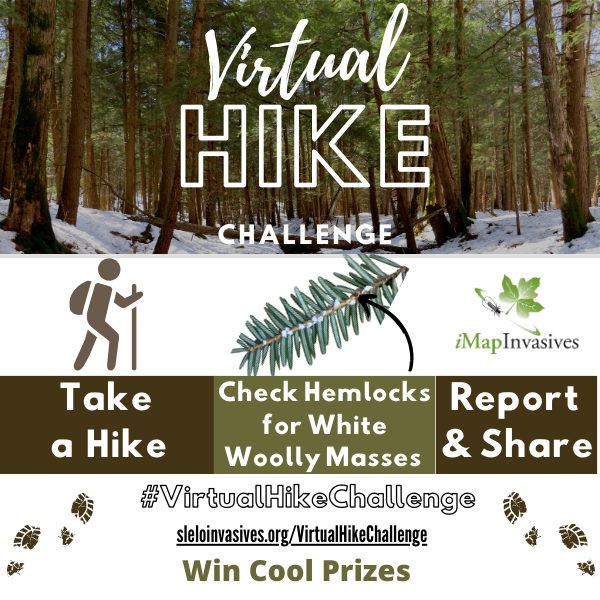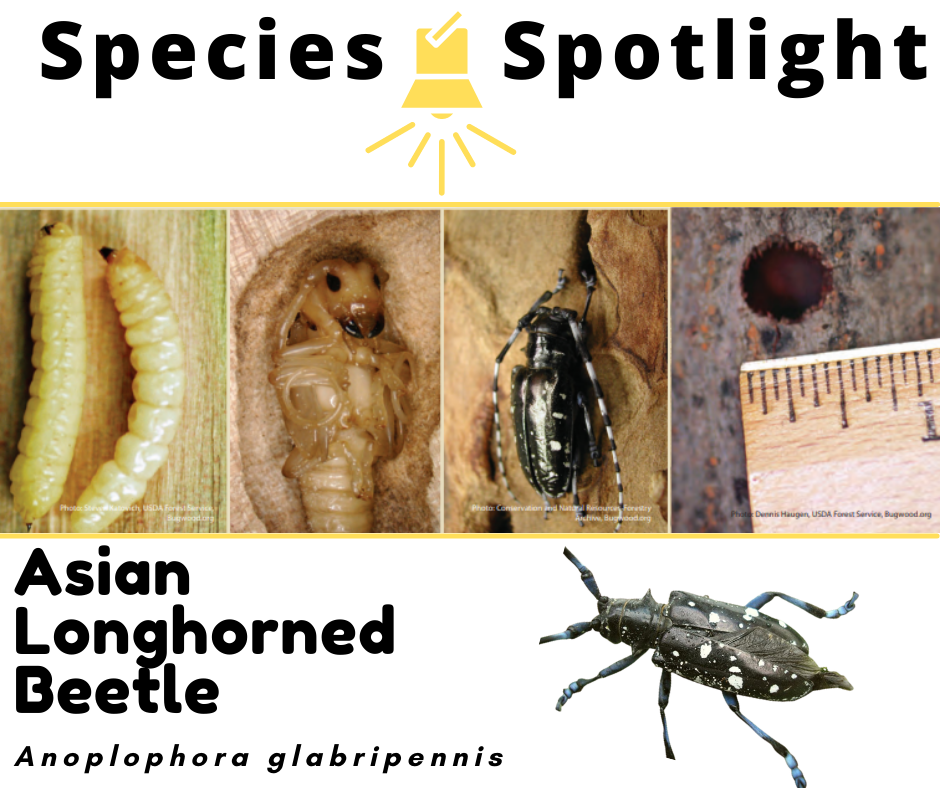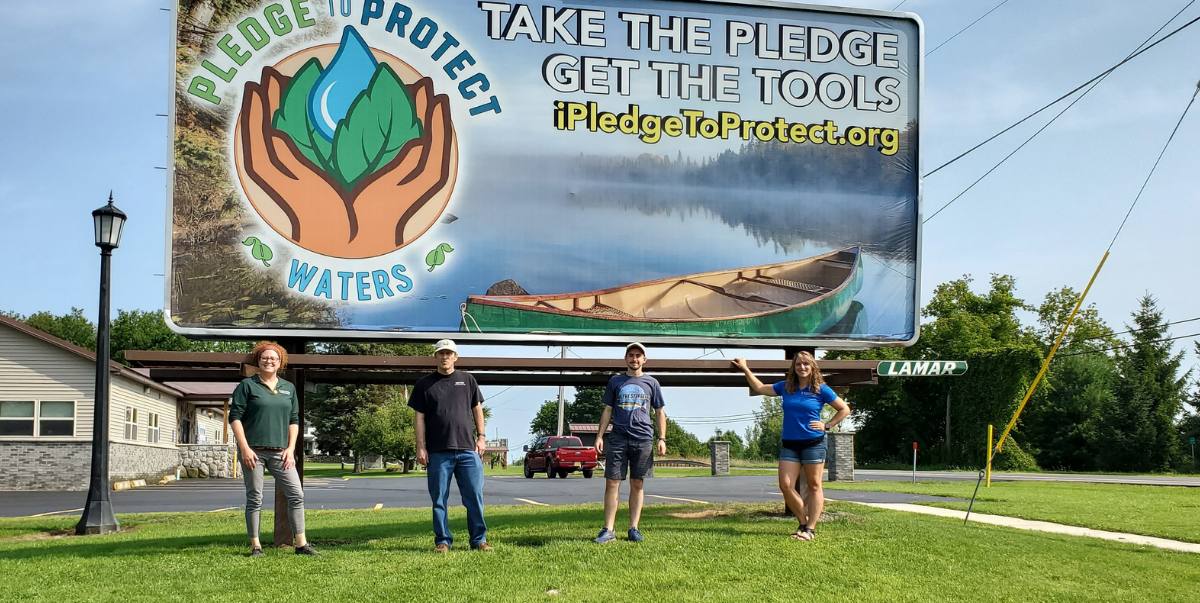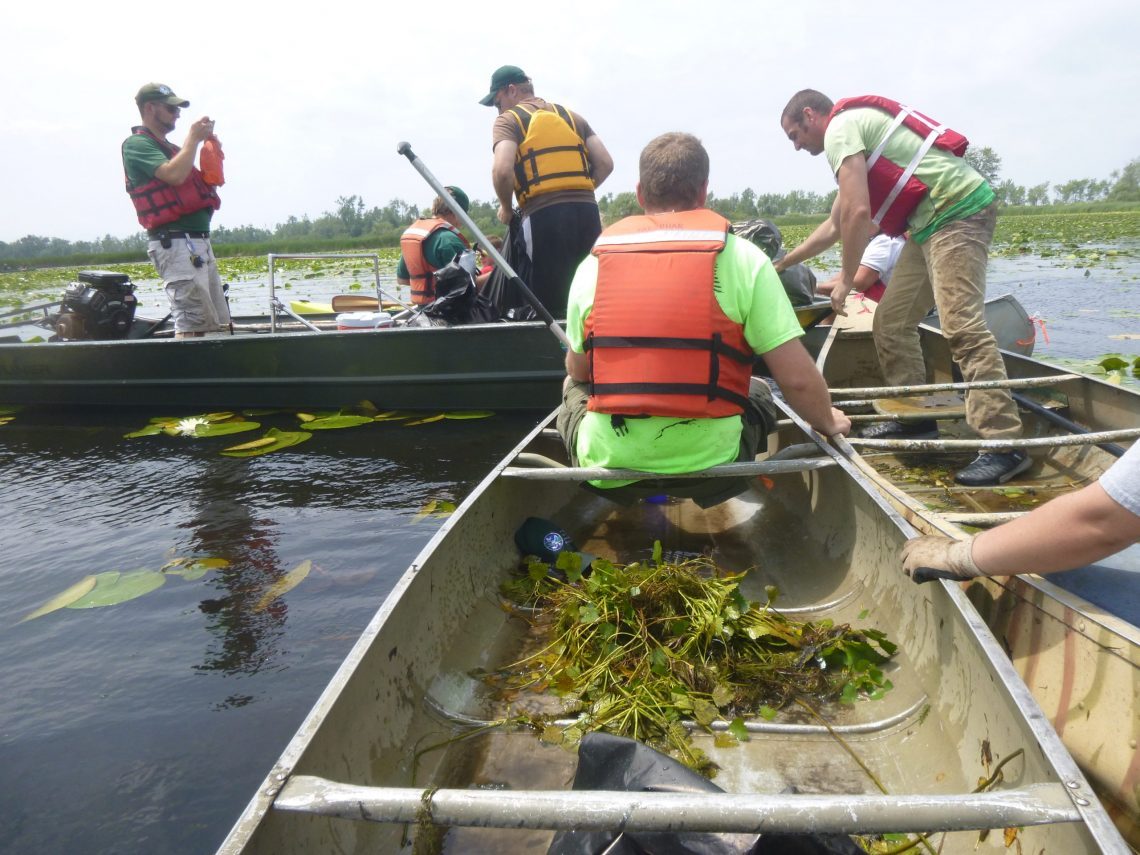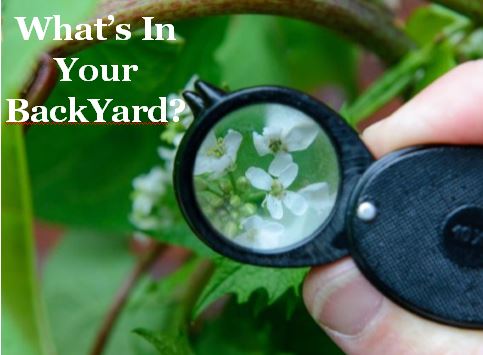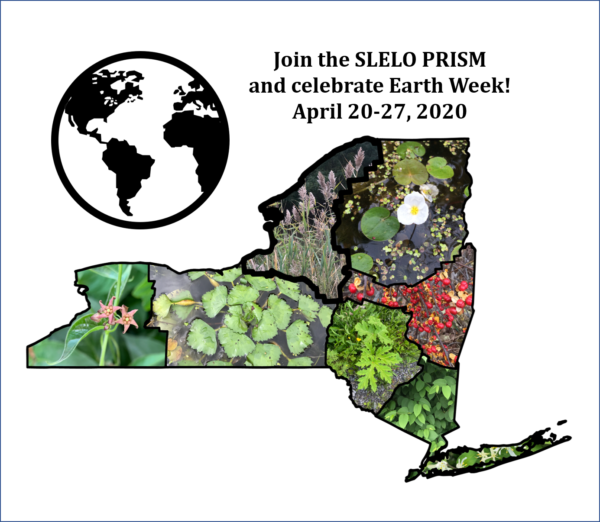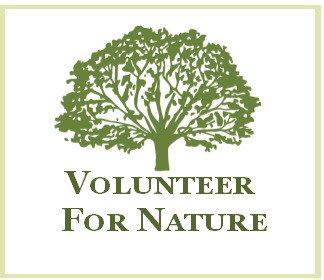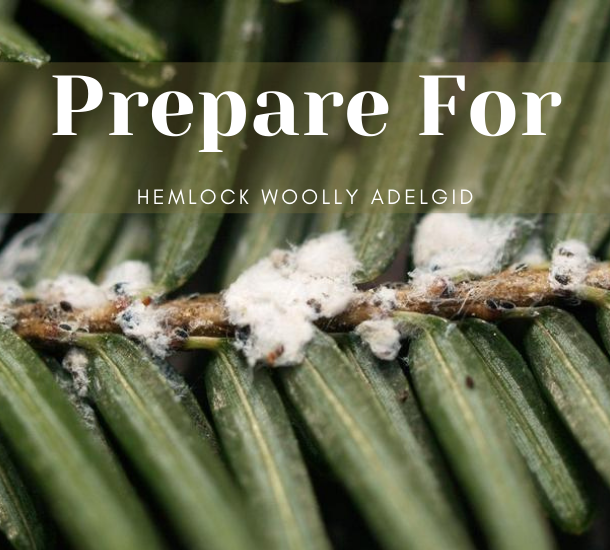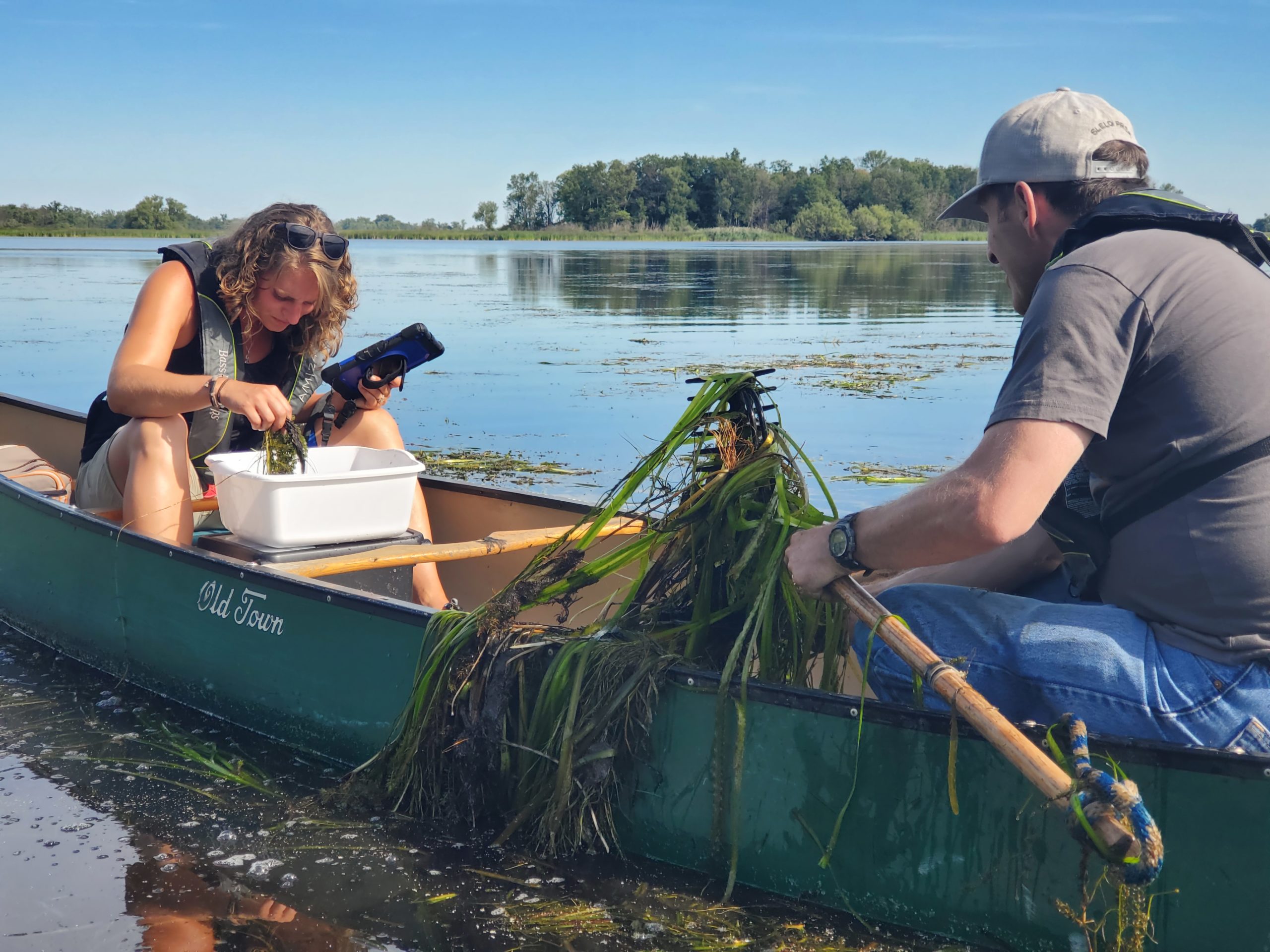13 Priority Conservation Areas and 30 Highly Probable Areas were surveyed for hemlock woolly adelgid in the SLELO region. Of the 30 HPAs searched, HWA was detected at 3 separate sites.
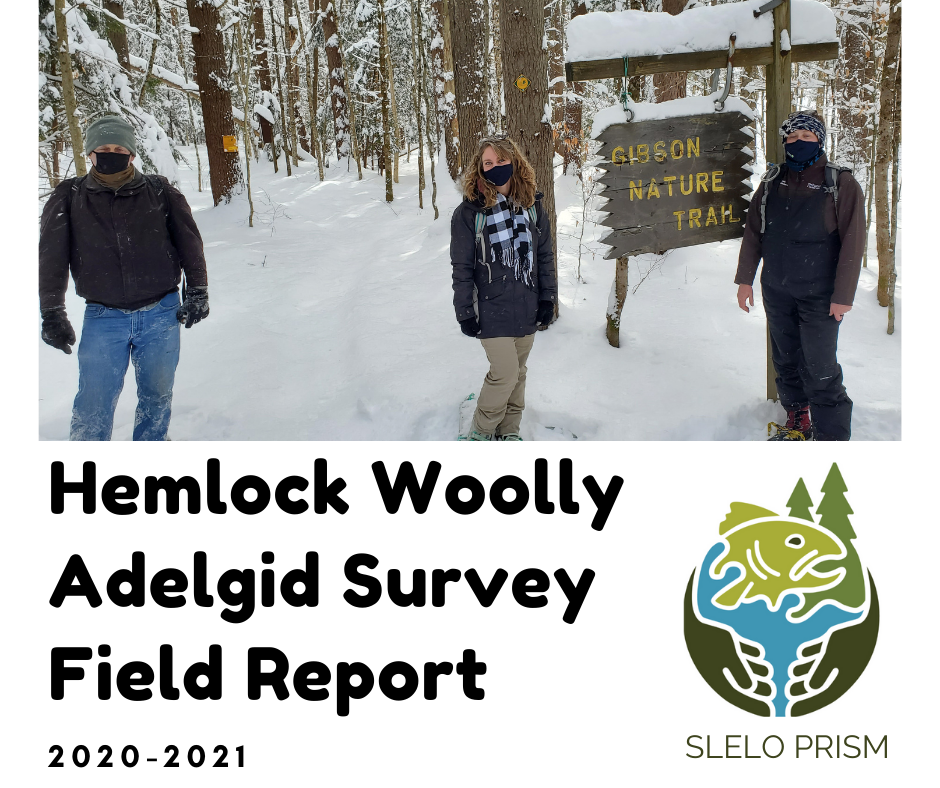
Field Survey conducted by Robert Smith and Brittney Rogers
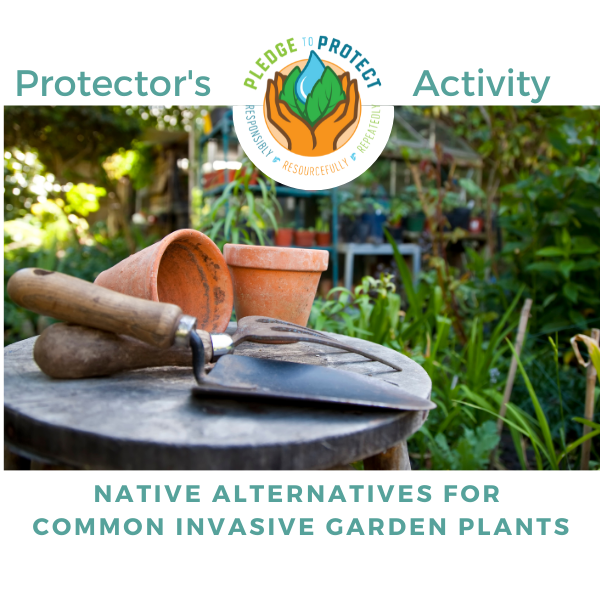
Protector’s Activity: Native Alternatives to Common Invasive Garden Plants
Many invasive plants were once considered desirable ornamentals that were intentionally introduced to our gardens and landscapes only to escape into our natural environments. Learn of native alternatives to common invasive garden plants.

Nature Knows no Boundaries
Humankind is a fan of creating boundaries, we like to think of things in terms of here or over there, ours or theirs, but nature knows no boundaries. The work we do to prevent the spread of an invasive forest pest or aquatic plant expands beyond our regional counties and other manmade borders, these efforts impact large-scale connected land and water scapes.
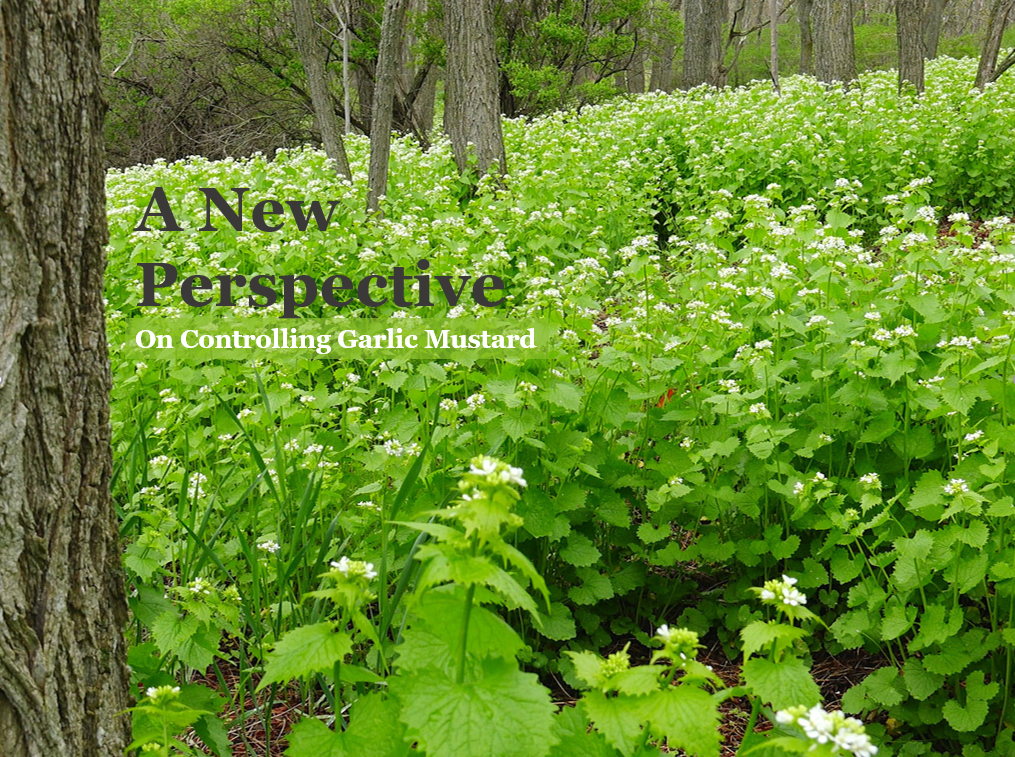
When Doing Nothing is Better?
Garlic mustard is one of the most common invasive plants found in backyards, along roadsides and within our natural areas and forests. There is a new perspective regarding the control of this common invader and it isn’t what you may think.
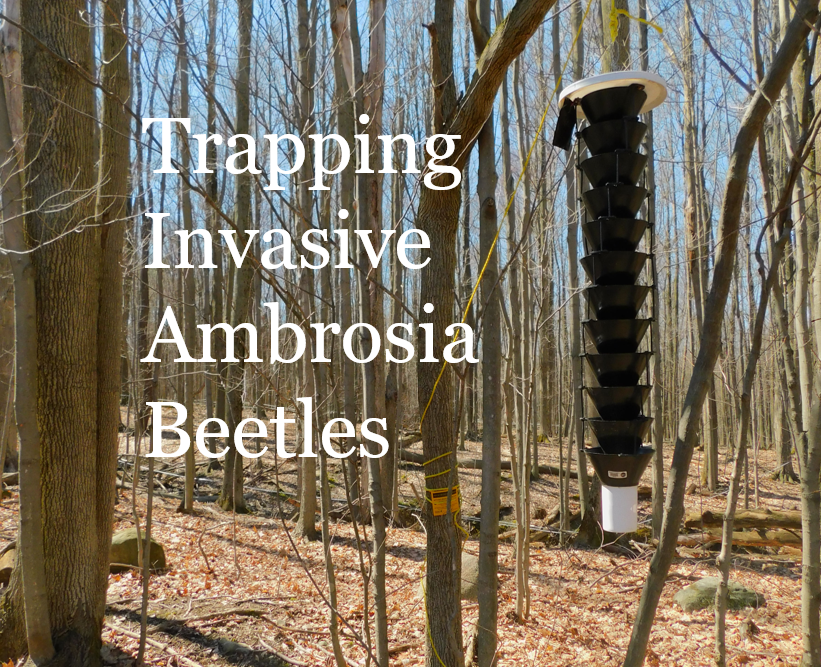
Trapping Invasive Beetles
The St. Lawrence Seaway is a high risk area for the introduction of Ambrosia beetles. These invasive beetles can attack freshly cut lumber and lumber in decks before it is dried, and they cause pinhole defects and dark staining in the outer wood. Galleries formed in the sapwood or heartwood also cause damage. SLELO is monitoring traps in the region to aid an early detection effort lead by the NYSDEC.
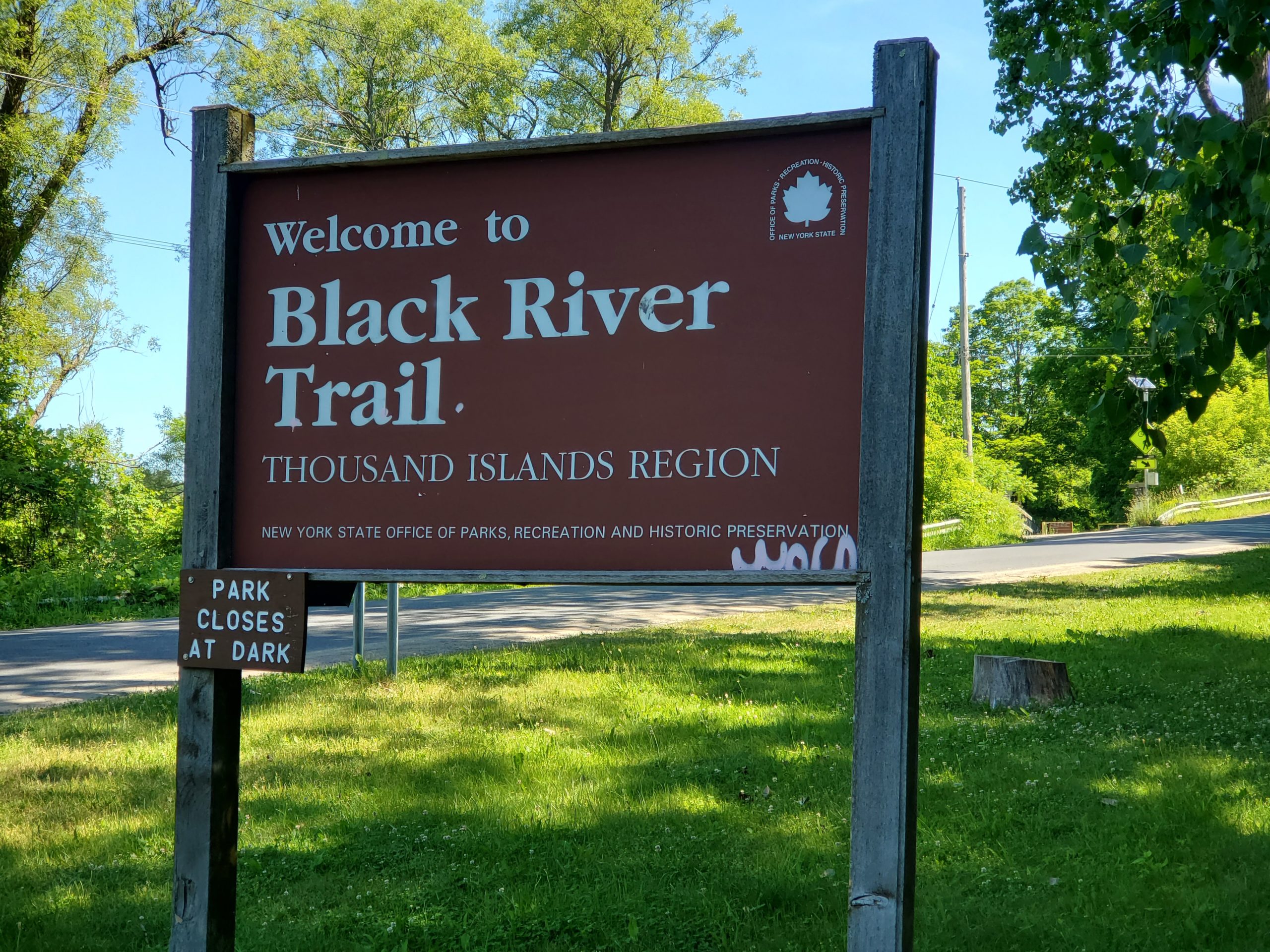
Prioritizing Restoration on the Black River Trail
85 Riparian Acres have been prioritized for restoration on the Black River Trail.
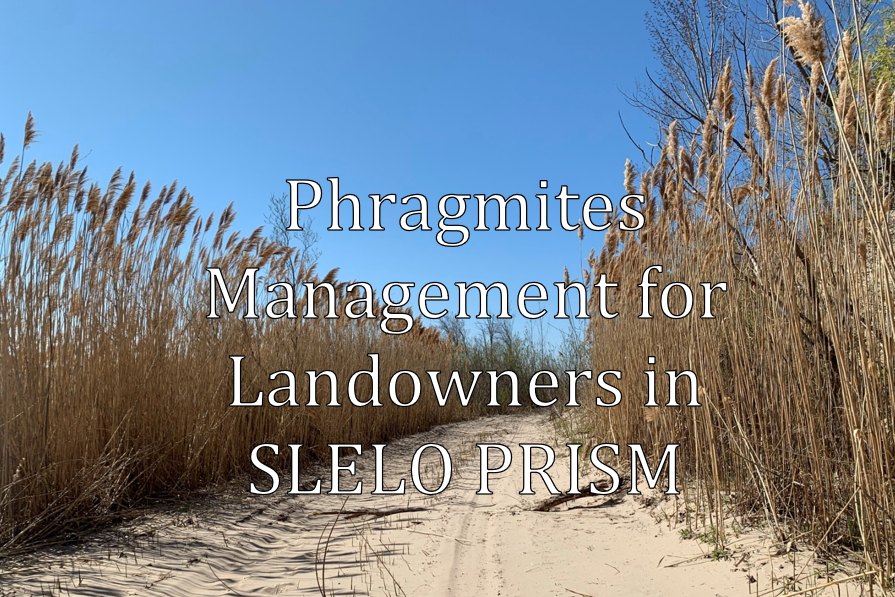
Phragmites Management for Landowners in the SLELO Region
As a landowner, it is important to preserve native biodiversity and protect your assets from the negative impacts of invasive species. Common reed or Phragmites australis, is one of the most common invasive plants in the SLELO region. Landowners who have this plant on their property can help control the spread of this plant through a variety of feasible control techniques.
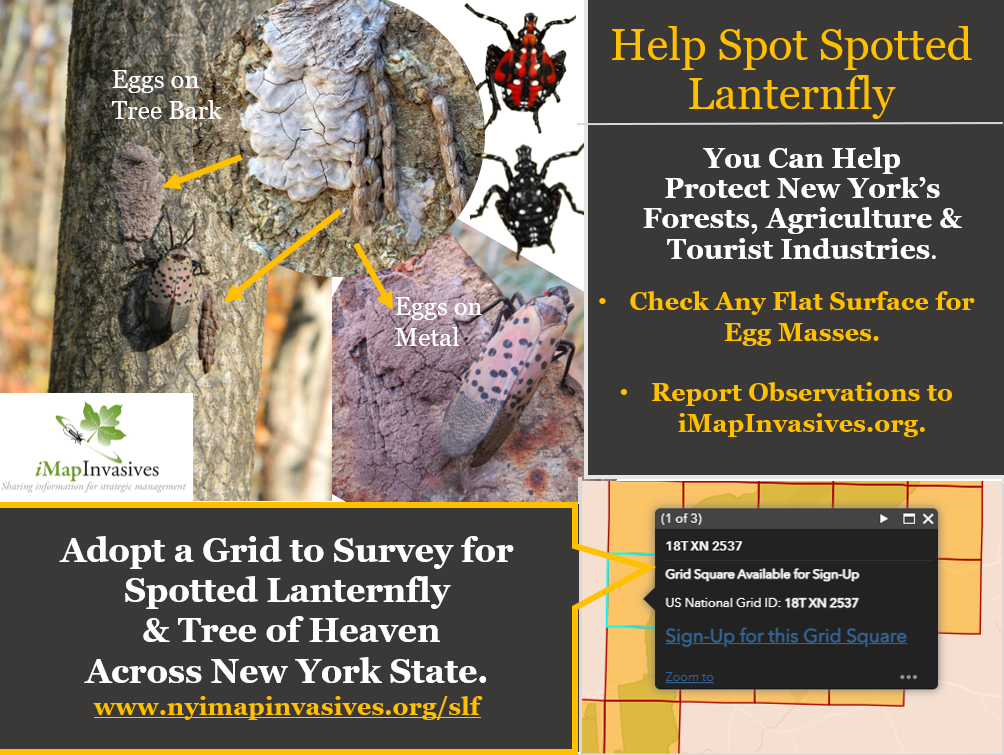
Help Spot Spotted Lanternfly-Adopt a Grid Square
Help spot spotted lanternfly and tree of heaven-adopt a survey grid square! Learn to recognize and report these invasive species to a state-wide iMapInvasives early detection project. Detecting these species early will help protect New York State’s forests, and agricultural and tourist industries.

Hemlock Woolly Adelgid Found in SLELO
The SLELO region is no longer the only region in NYS to have not found hemlock woolly adelgid.
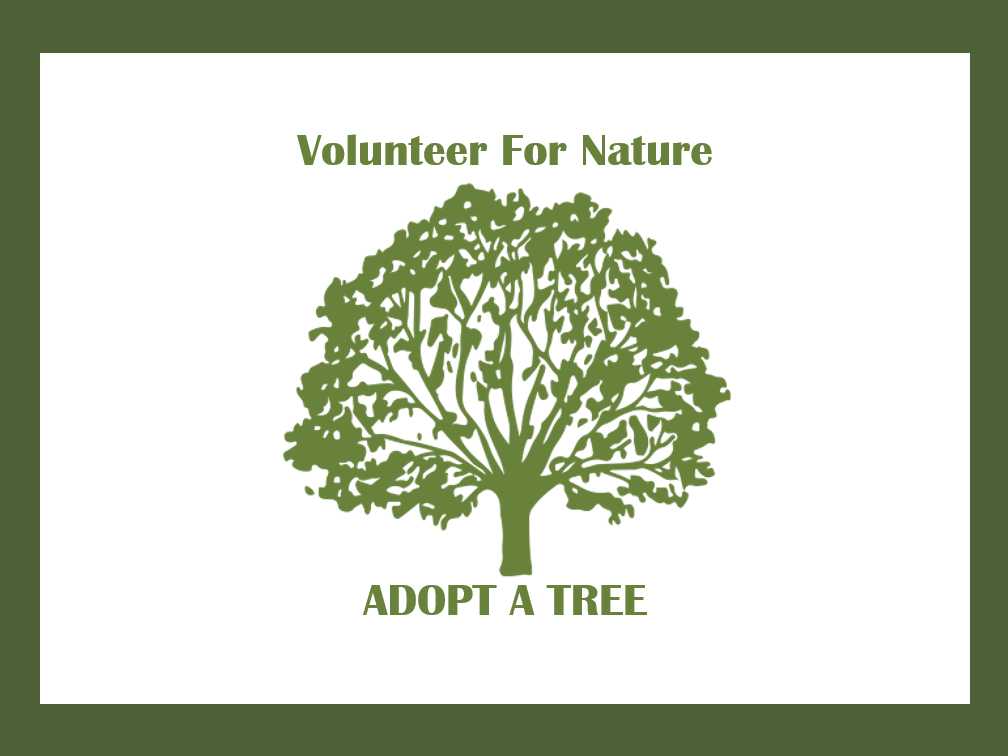
Adopt a Tree
Urban forests are street trees and other vegetation that provide green spaces within an urban setting. Urban forests provide immense beauty to cities, as well as many benefits for people and nature. Invasive tree pests threaten the health of our urban forests.
Help protect your urban forests and adopt a tree to monitor for signs of invasive pests.

